Developing Manager Report - Leadership and Career Development
VerifiedAdded on 2020/01/23
|25
|5004
|88
Report
AI Summary
This report examines the role of a developing manager, exploring management theories, leadership characteristics, and communication processes within an organization, using Thomas Cook as a case study. It analyzes classical, systems, and contingency approaches to management, highlighting leadership styles, motivation techniques, and the impact of stakeholders. The report assesses personal management skills, strengths, weaknesses, and sets objectives for development, including planning, organizing, and cognitive skills. It also covers team leadership, decision-making, and career development, emphasizing the importance of organizational structure, culture, and change management. The report provides a comprehensive overview of the skills and strategies necessary for effective management and career progression.
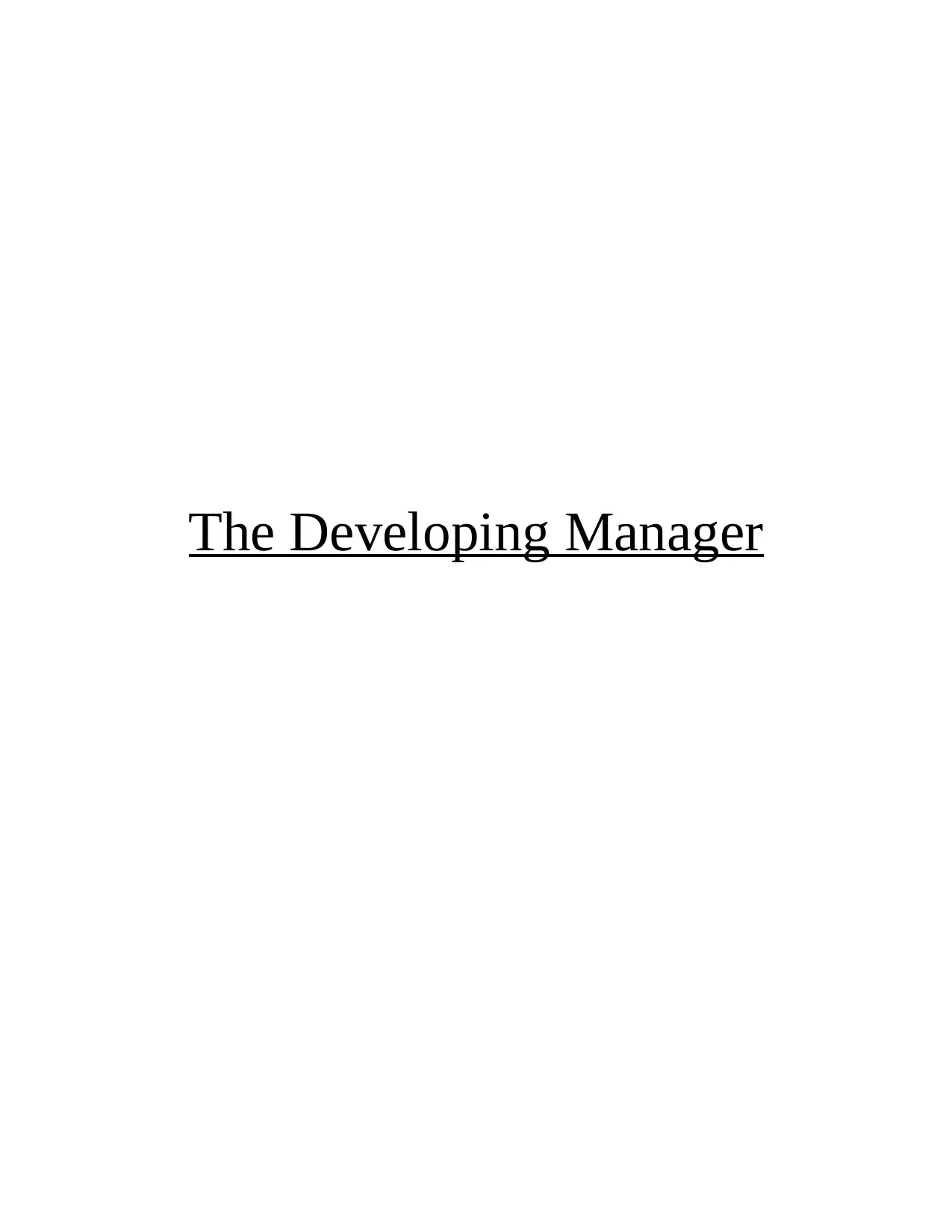
The Developing Manager
Paraphrase This Document
Need a fresh take? Get an instant paraphrase of this document with our AI Paraphraser
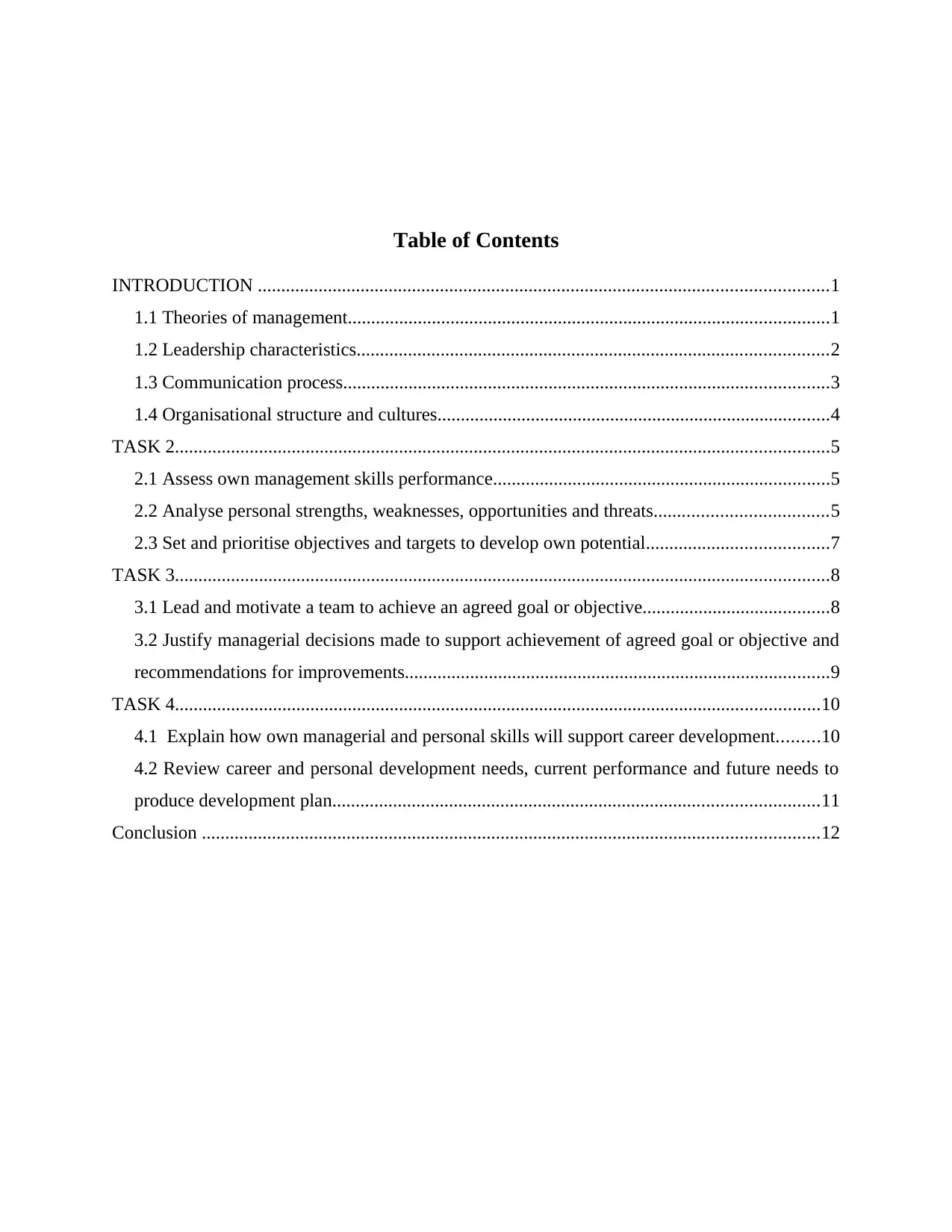
Table of Contents
INTRODUCTION ..........................................................................................................................1
1.1 Theories of management.......................................................................................................1
1.2 Leadership characteristics.....................................................................................................2
1.3 Communication process........................................................................................................3
1.4 Organisational structure and cultures....................................................................................4
TASK 2............................................................................................................................................5
2.1 Assess own management skills performance........................................................................5
2.2 Analyse personal strengths, weaknesses, opportunities and threats.....................................5
2.3 Set and prioritise objectives and targets to develop own potential.......................................7
TASK 3............................................................................................................................................8
3.1 Lead and motivate a team to achieve an agreed goal or objective........................................8
3.2 Justify managerial decisions made to support achievement of agreed goal or objective and
recommendations for improvements...........................................................................................9
TASK 4..........................................................................................................................................10
4.1 Explain how own managerial and personal skills will support career development.........10
4.2 Review career and personal development needs, current performance and future needs to
produce development plan........................................................................................................11
Conclusion ....................................................................................................................................12
INTRODUCTION ..........................................................................................................................1
1.1 Theories of management.......................................................................................................1
1.2 Leadership characteristics.....................................................................................................2
1.3 Communication process........................................................................................................3
1.4 Organisational structure and cultures....................................................................................4
TASK 2............................................................................................................................................5
2.1 Assess own management skills performance........................................................................5
2.2 Analyse personal strengths, weaknesses, opportunities and threats.....................................5
2.3 Set and prioritise objectives and targets to develop own potential.......................................7
TASK 3............................................................................................................................................8
3.1 Lead and motivate a team to achieve an agreed goal or objective........................................8
3.2 Justify managerial decisions made to support achievement of agreed goal or objective and
recommendations for improvements...........................................................................................9
TASK 4..........................................................................................................................................10
4.1 Explain how own managerial and personal skills will support career development.........10
4.2 Review career and personal development needs, current performance and future needs to
produce development plan........................................................................................................11
Conclusion ....................................................................................................................................12
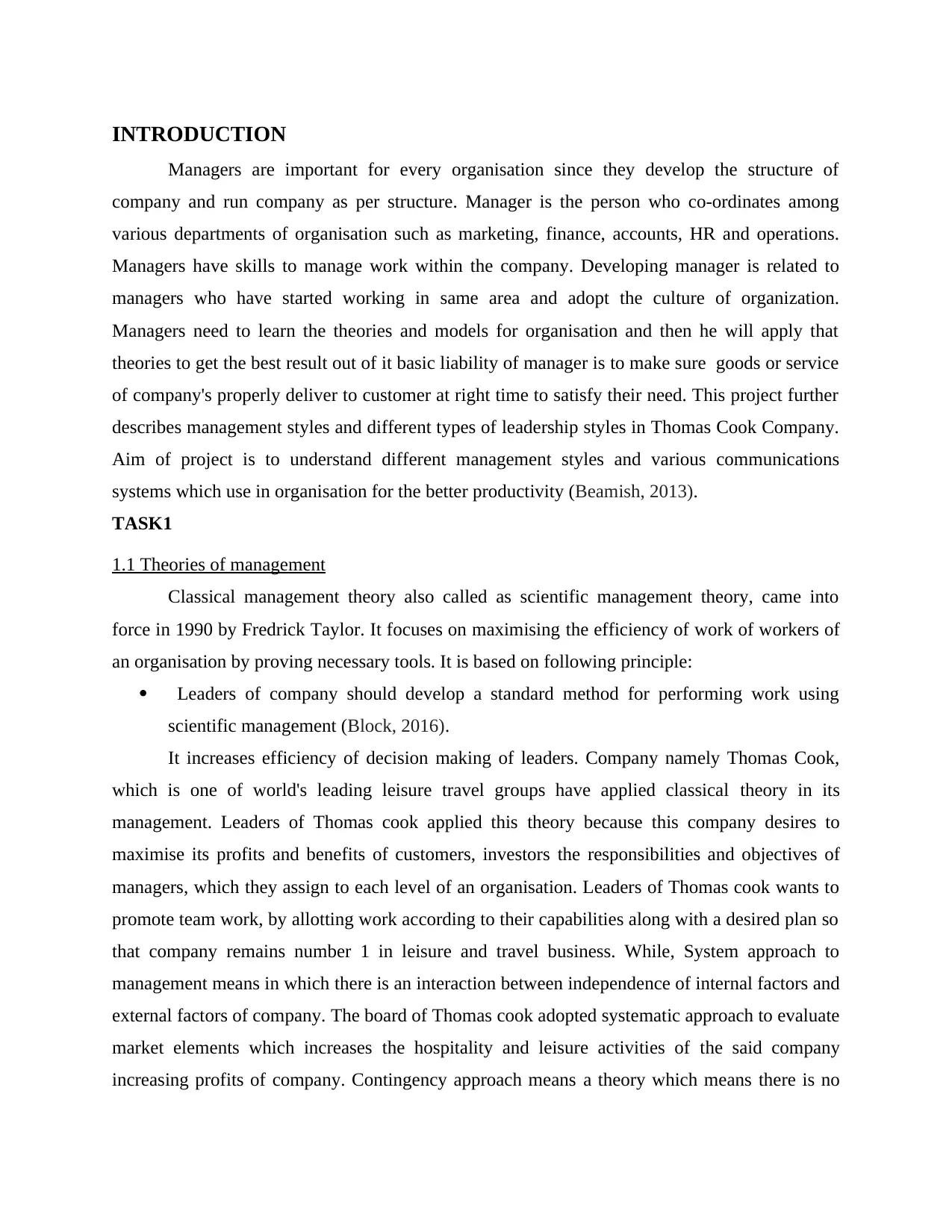
INTRODUCTION
Managers are important for every organisation since they develop the structure of
company and run company as per structure. Manager is the person who co-ordinates among
various departments of organisation such as marketing, finance, accounts, HR and operations.
Managers have skills to manage work within the company. Developing manager is related to
managers who have started working in same area and adopt the culture of organization.
Managers need to learn the theories and models for organisation and then he will apply that
theories to get the best result out of it basic liability of manager is to make sure goods or service
of company's properly deliver to customer at right time to satisfy their need. This project further
describes management styles and different types of leadership styles in Thomas Cook Company.
Aim of project is to understand different management styles and various communications
systems which use in organisation for the better productivity (Beamish, 2013).
TASK1
1.1 Theories of management
Classical management theory also called as scientific management theory, came into
force in 1990 by Fredrick Taylor. It focuses on maximising the efficiency of work of workers of
an organisation by proving necessary tools. It is based on following principle:
Leaders of company should develop a standard method for performing work using
scientific management (Block, 2016).
It increases efficiency of decision making of leaders. Company namely Thomas Cook,
which is one of world's leading leisure travel groups have applied classical theory in its
management. Leaders of Thomas cook applied this theory because this company desires to
maximise its profits and benefits of customers, investors the responsibilities and objectives of
managers, which they assign to each level of an organisation. Leaders of Thomas cook wants to
promote team work, by allotting work according to their capabilities along with a desired plan so
that company remains number 1 in leisure and travel business. While, System approach to
management means in which there is an interaction between independence of internal factors and
external factors of company. The board of Thomas cook adopted systematic approach to evaluate
market elements which increases the hospitality and leisure activities of the said company
increasing profits of company. Contingency approach means a theory which means there is no
Managers are important for every organisation since they develop the structure of
company and run company as per structure. Manager is the person who co-ordinates among
various departments of organisation such as marketing, finance, accounts, HR and operations.
Managers have skills to manage work within the company. Developing manager is related to
managers who have started working in same area and adopt the culture of organization.
Managers need to learn the theories and models for organisation and then he will apply that
theories to get the best result out of it basic liability of manager is to make sure goods or service
of company's properly deliver to customer at right time to satisfy their need. This project further
describes management styles and different types of leadership styles in Thomas Cook Company.
Aim of project is to understand different management styles and various communications
systems which use in organisation for the better productivity (Beamish, 2013).
TASK1
1.1 Theories of management
Classical management theory also called as scientific management theory, came into
force in 1990 by Fredrick Taylor. It focuses on maximising the efficiency of work of workers of
an organisation by proving necessary tools. It is based on following principle:
Leaders of company should develop a standard method for performing work using
scientific management (Block, 2016).
It increases efficiency of decision making of leaders. Company namely Thomas Cook,
which is one of world's leading leisure travel groups have applied classical theory in its
management. Leaders of Thomas cook applied this theory because this company desires to
maximise its profits and benefits of customers, investors the responsibilities and objectives of
managers, which they assign to each level of an organisation. Leaders of Thomas cook wants to
promote team work, by allotting work according to their capabilities along with a desired plan so
that company remains number 1 in leisure and travel business. While, System approach to
management means in which there is an interaction between independence of internal factors and
external factors of company. The board of Thomas cook adopted systematic approach to evaluate
market elements which increases the hospitality and leisure activities of the said company
increasing profits of company. Contingency approach means a theory which means there is no
⊘ This is a preview!⊘
Do you want full access?
Subscribe today to unlock all pages.

Trusted by 1+ million students worldwide
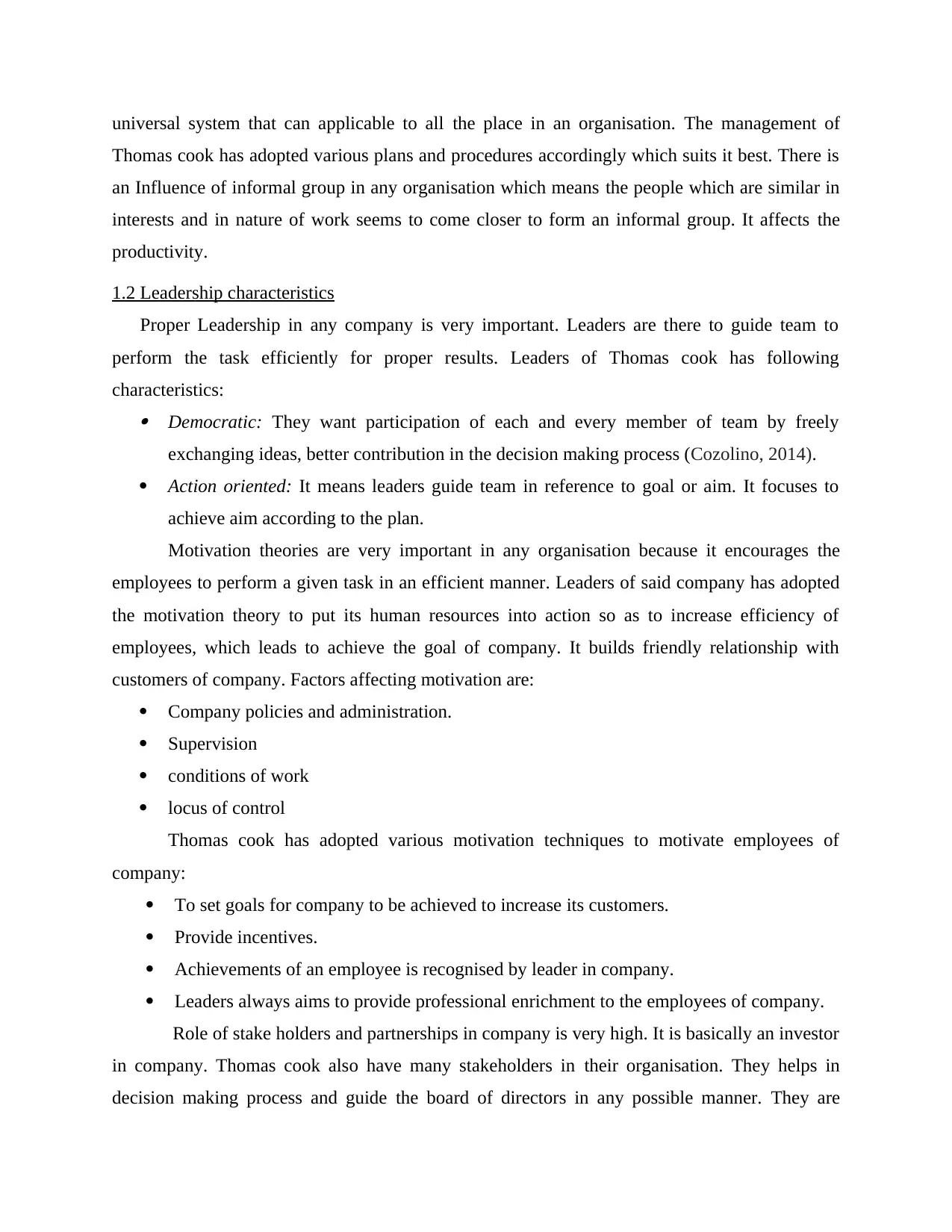
universal system that can applicable to all the place in an organisation. The management of
Thomas cook has adopted various plans and procedures accordingly which suits it best. There is
an Influence of informal group in any organisation which means the people which are similar in
interests and in nature of work seems to come closer to form an informal group. It affects the
productivity.
1.2 Leadership characteristics
Proper Leadership in any company is very important. Leaders are there to guide team to
perform the task efficiently for proper results. Leaders of Thomas cook has following
characteristics: Democratic: They want participation of each and every member of team by freely
exchanging ideas, better contribution in the decision making process (Cozolino, 2014).
Action oriented: It means leaders guide team in reference to goal or aim. It focuses to
achieve aim according to the plan.
Motivation theories are very important in any organisation because it encourages the
employees to perform a given task in an efficient manner. Leaders of said company has adopted
the motivation theory to put its human resources into action so as to increase efficiency of
employees, which leads to achieve the goal of company. It builds friendly relationship with
customers of company. Factors affecting motivation are:
Company policies and administration.
Supervision
conditions of work
locus of control
Thomas cook has adopted various motivation techniques to motivate employees of
company:
To set goals for company to be achieved to increase its customers.
Provide incentives.
Achievements of an employee is recognised by leader in company.
Leaders always aims to provide professional enrichment to the employees of company.
Role of stake holders and partnerships in company is very high. It is basically an investor
in company. Thomas cook also have many stakeholders in their organisation. They helps in
decision making process and guide the board of directors in any possible manner. They are
Thomas cook has adopted various plans and procedures accordingly which suits it best. There is
an Influence of informal group in any organisation which means the people which are similar in
interests and in nature of work seems to come closer to form an informal group. It affects the
productivity.
1.2 Leadership characteristics
Proper Leadership in any company is very important. Leaders are there to guide team to
perform the task efficiently for proper results. Leaders of Thomas cook has following
characteristics: Democratic: They want participation of each and every member of team by freely
exchanging ideas, better contribution in the decision making process (Cozolino, 2014).
Action oriented: It means leaders guide team in reference to goal or aim. It focuses to
achieve aim according to the plan.
Motivation theories are very important in any organisation because it encourages the
employees to perform a given task in an efficient manner. Leaders of said company has adopted
the motivation theory to put its human resources into action so as to increase efficiency of
employees, which leads to achieve the goal of company. It builds friendly relationship with
customers of company. Factors affecting motivation are:
Company policies and administration.
Supervision
conditions of work
locus of control
Thomas cook has adopted various motivation techniques to motivate employees of
company:
To set goals for company to be achieved to increase its customers.
Provide incentives.
Achievements of an employee is recognised by leader in company.
Leaders always aims to provide professional enrichment to the employees of company.
Role of stake holders and partnerships in company is very high. It is basically an investor
in company. Thomas cook also have many stakeholders in their organisation. They helps in
decision making process and guide the board of directors in any possible manner. They are
Paraphrase This Document
Need a fresh take? Get an instant paraphrase of this document with our AI Paraphraser
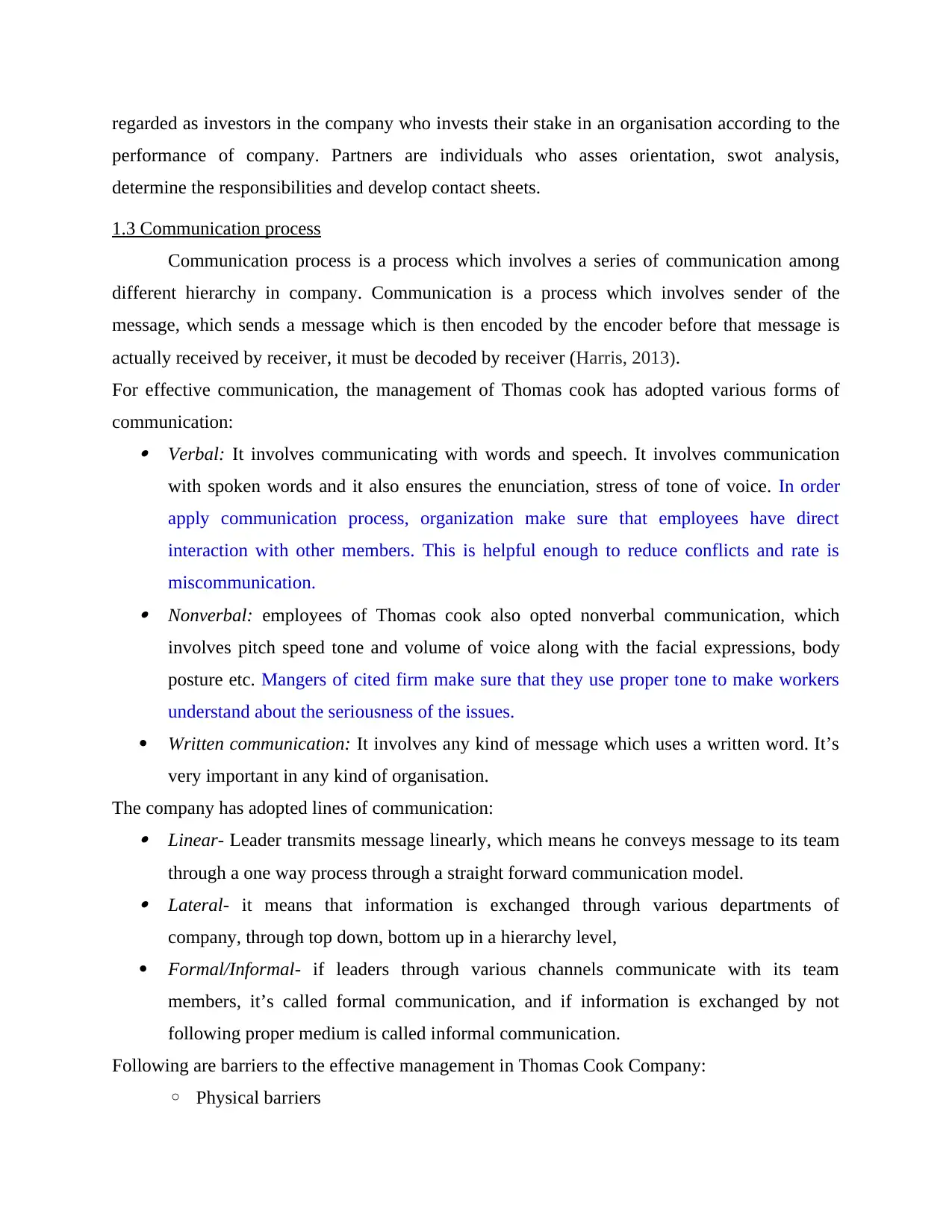
regarded as investors in the company who invests their stake in an organisation according to the
performance of company. Partners are individuals who asses orientation, swot analysis,
determine the responsibilities and develop contact sheets.
1.3 Communication process
Communication process is a process which involves a series of communication among
different hierarchy in company. Communication is a process which involves sender of the
message, which sends a message which is then encoded by the encoder before that message is
actually received by receiver, it must be decoded by receiver (Harris, 2013).
For effective communication, the management of Thomas cook has adopted various forms of
communication: Verbal: It involves communicating with words and speech. It involves communication
with spoken words and it also ensures the enunciation, stress of tone of voice. In order
apply communication process, organization make sure that employees have direct
interaction with other members. This is helpful enough to reduce conflicts and rate is
miscommunication. Nonverbal: employees of Thomas cook also opted nonverbal communication, which
involves pitch speed tone and volume of voice along with the facial expressions, body
posture etc. Mangers of cited firm make sure that they use proper tone to make workers
understand about the seriousness of the issues.
Written communication: It involves any kind of message which uses a written word. It’s
very important in any kind of organisation.
The company has adopted lines of communication: Linear- Leader transmits message linearly, which means he conveys message to its team
through a one way process through a straight forward communication model. Lateral- it means that information is exchanged through various departments of
company, through top down, bottom up in a hierarchy level,
Formal/Informal- if leaders through various channels communicate with its team
members, it’s called formal communication, and if information is exchanged by not
following proper medium is called informal communication.
Following are barriers to the effective management in Thomas Cook Company:
◦ Physical barriers
performance of company. Partners are individuals who asses orientation, swot analysis,
determine the responsibilities and develop contact sheets.
1.3 Communication process
Communication process is a process which involves a series of communication among
different hierarchy in company. Communication is a process which involves sender of the
message, which sends a message which is then encoded by the encoder before that message is
actually received by receiver, it must be decoded by receiver (Harris, 2013).
For effective communication, the management of Thomas cook has adopted various forms of
communication: Verbal: It involves communicating with words and speech. It involves communication
with spoken words and it also ensures the enunciation, stress of tone of voice. In order
apply communication process, organization make sure that employees have direct
interaction with other members. This is helpful enough to reduce conflicts and rate is
miscommunication. Nonverbal: employees of Thomas cook also opted nonverbal communication, which
involves pitch speed tone and volume of voice along with the facial expressions, body
posture etc. Mangers of cited firm make sure that they use proper tone to make workers
understand about the seriousness of the issues.
Written communication: It involves any kind of message which uses a written word. It’s
very important in any kind of organisation.
The company has adopted lines of communication: Linear- Leader transmits message linearly, which means he conveys message to its team
through a one way process through a straight forward communication model. Lateral- it means that information is exchanged through various departments of
company, through top down, bottom up in a hierarchy level,
Formal/Informal- if leaders through various channels communicate with its team
members, it’s called formal communication, and if information is exchanged by not
following proper medium is called informal communication.
Following are barriers to the effective management in Thomas Cook Company:
◦ Physical barriers
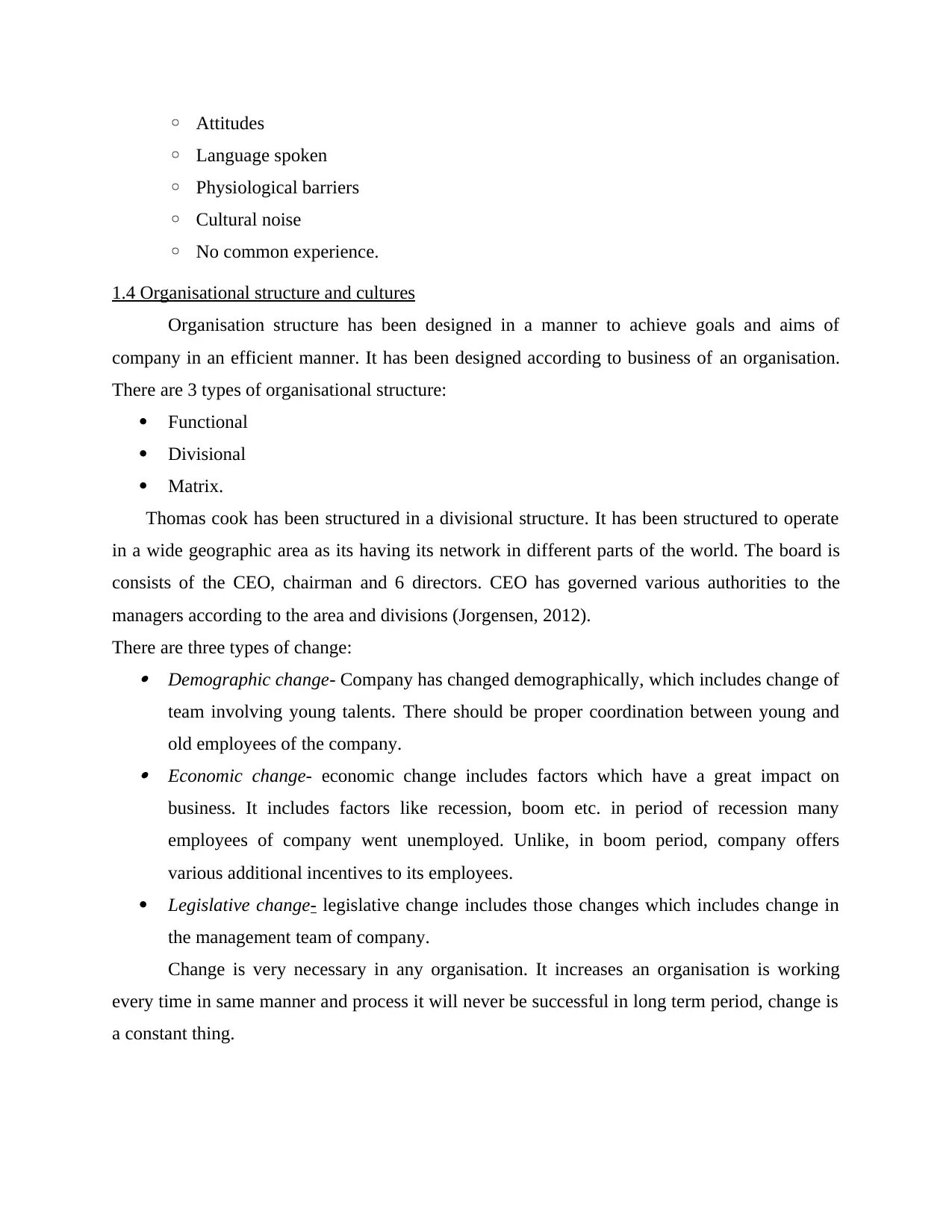
◦ Attitudes
◦ Language spoken
◦ Physiological barriers
◦ Cultural noise
◦ No common experience.
1.4 Organisational structure and cultures
Organisation structure has been designed in a manner to achieve goals and aims of
company in an efficient manner. It has been designed according to business of an organisation.
There are 3 types of organisational structure:
Functional
Divisional
Matrix.
Thomas cook has been structured in a divisional structure. It has been structured to operate
in a wide geographic area as its having its network in different parts of the world. The board is
consists of the CEO, chairman and 6 directors. CEO has governed various authorities to the
managers according to the area and divisions (Jorgensen, 2012).
There are three types of change: Demographic change- Company has changed demographically, which includes change of
team involving young talents. There should be proper coordination between young and
old employees of the company. Economic change- economic change includes factors which have a great impact on
business. It includes factors like recession, boom etc. in period of recession many
employees of company went unemployed. Unlike, in boom period, company offers
various additional incentives to its employees.
Legislative change- legislative change includes those changes which includes change in
the management team of company.
Change is very necessary in any organisation. It increases an organisation is working
every time in same manner and process it will never be successful in long term period, change is
a constant thing.
◦ Language spoken
◦ Physiological barriers
◦ Cultural noise
◦ No common experience.
1.4 Organisational structure and cultures
Organisation structure has been designed in a manner to achieve goals and aims of
company in an efficient manner. It has been designed according to business of an organisation.
There are 3 types of organisational structure:
Functional
Divisional
Matrix.
Thomas cook has been structured in a divisional structure. It has been structured to operate
in a wide geographic area as its having its network in different parts of the world. The board is
consists of the CEO, chairman and 6 directors. CEO has governed various authorities to the
managers according to the area and divisions (Jorgensen, 2012).
There are three types of change: Demographic change- Company has changed demographically, which includes change of
team involving young talents. There should be proper coordination between young and
old employees of the company. Economic change- economic change includes factors which have a great impact on
business. It includes factors like recession, boom etc. in period of recession many
employees of company went unemployed. Unlike, in boom period, company offers
various additional incentives to its employees.
Legislative change- legislative change includes those changes which includes change in
the management team of company.
Change is very necessary in any organisation. It increases an organisation is working
every time in same manner and process it will never be successful in long term period, change is
a constant thing.
⊘ This is a preview!⊘
Do you want full access?
Subscribe today to unlock all pages.

Trusted by 1+ million students worldwide
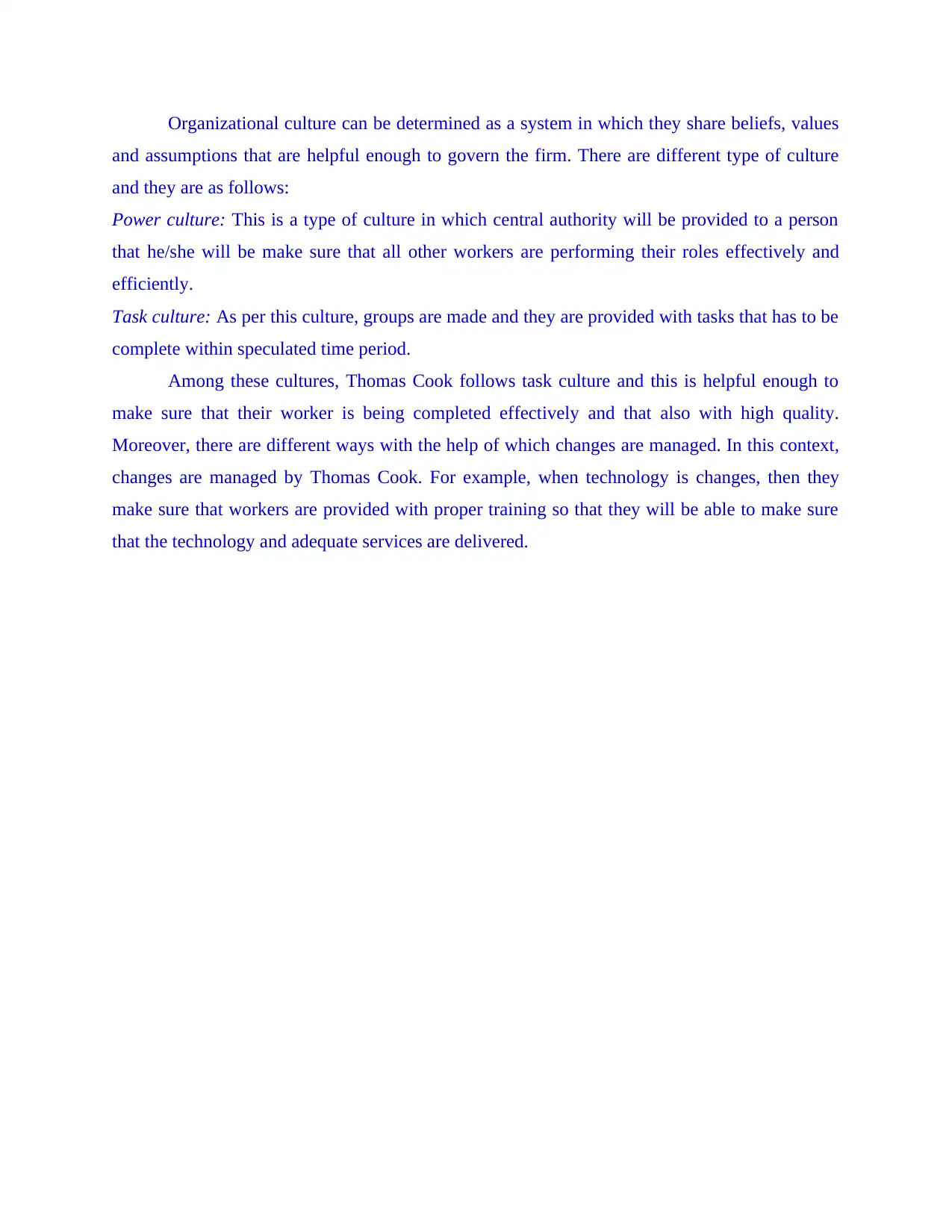
Organizational culture can be determined as a system in which they share beliefs, values
and assumptions that are helpful enough to govern the firm. There are different type of culture
and they are as follows:
Power culture: This is a type of culture in which central authority will be provided to a person
that he/she will be make sure that all other workers are performing their roles effectively and
efficiently.
Task culture: As per this culture, groups are made and they are provided with tasks that has to be
complete within speculated time period.
Among these cultures, Thomas Cook follows task culture and this is helpful enough to
make sure that their worker is being completed effectively and that also with high quality.
Moreover, there are different ways with the help of which changes are managed. In this context,
changes are managed by Thomas Cook. For example, when technology is changes, then they
make sure that workers are provided with proper training so that they will be able to make sure
that the technology and adequate services are delivered.
and assumptions that are helpful enough to govern the firm. There are different type of culture
and they are as follows:
Power culture: This is a type of culture in which central authority will be provided to a person
that he/she will be make sure that all other workers are performing their roles effectively and
efficiently.
Task culture: As per this culture, groups are made and they are provided with tasks that has to be
complete within speculated time period.
Among these cultures, Thomas Cook follows task culture and this is helpful enough to
make sure that their worker is being completed effectively and that also with high quality.
Moreover, there are different ways with the help of which changes are managed. In this context,
changes are managed by Thomas Cook. For example, when technology is changes, then they
make sure that workers are provided with proper training so that they will be able to make sure
that the technology and adequate services are delivered.
Paraphrase This Document
Need a fresh take? Get an instant paraphrase of this document with our AI Paraphraser
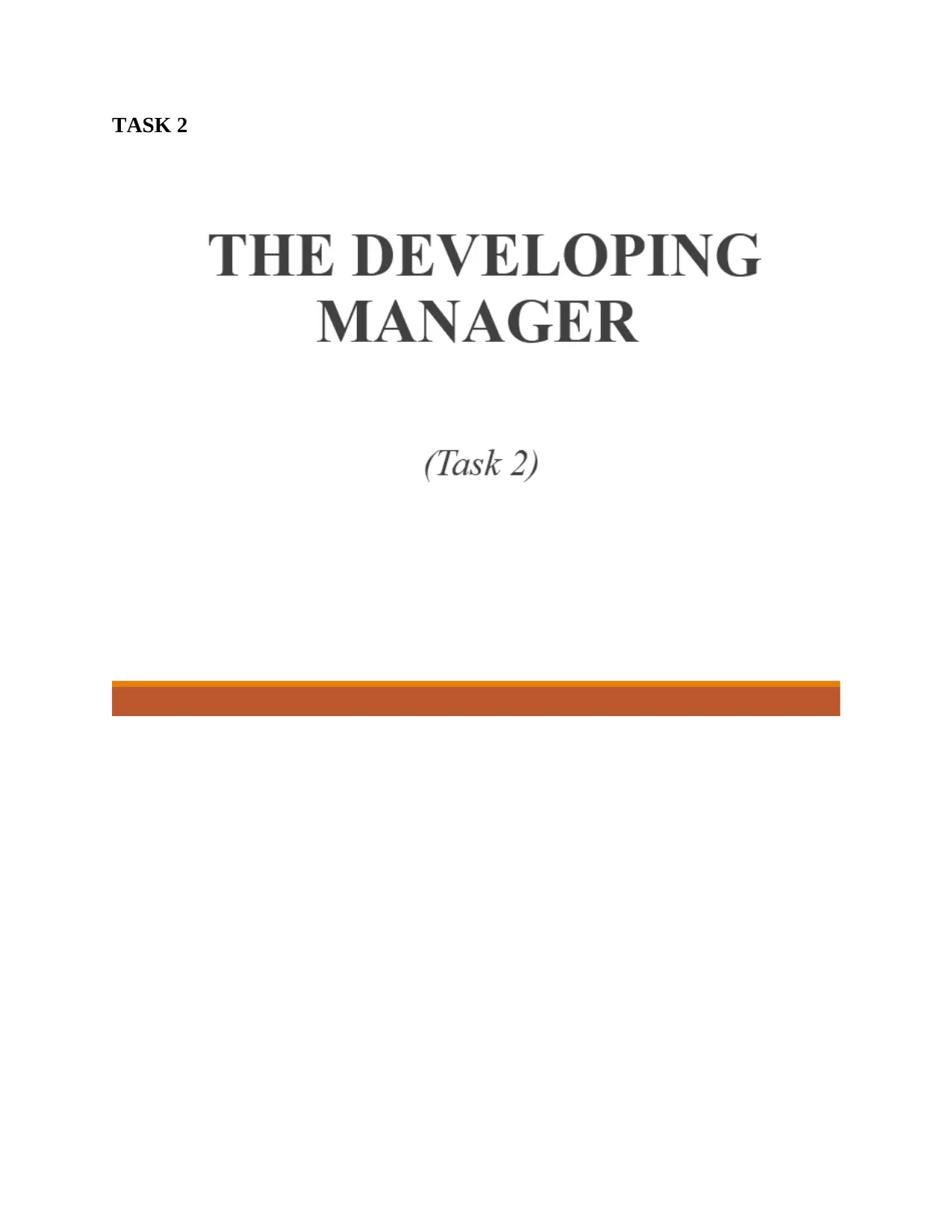
TASK 2
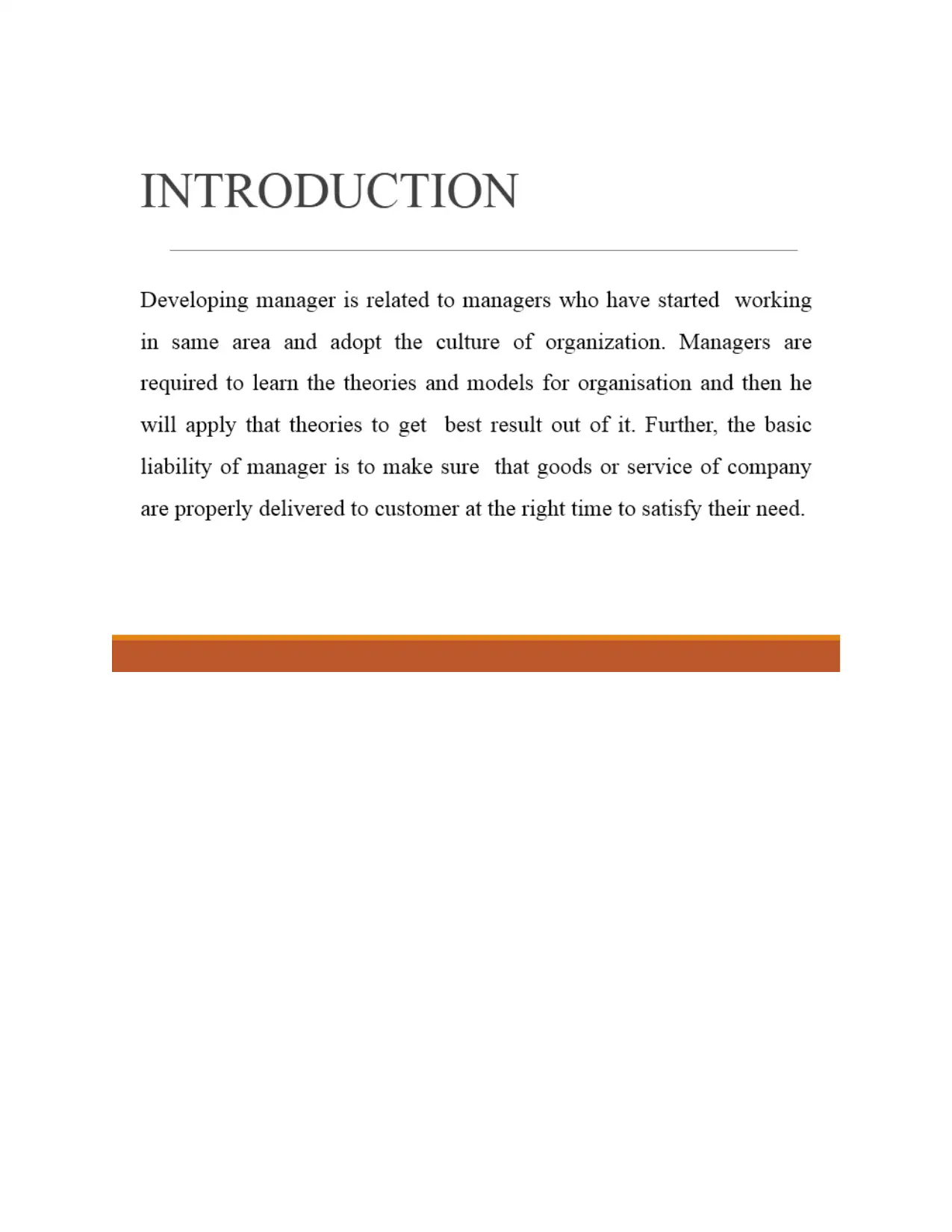
⊘ This is a preview!⊘
Do you want full access?
Subscribe today to unlock all pages.

Trusted by 1+ million students worldwide
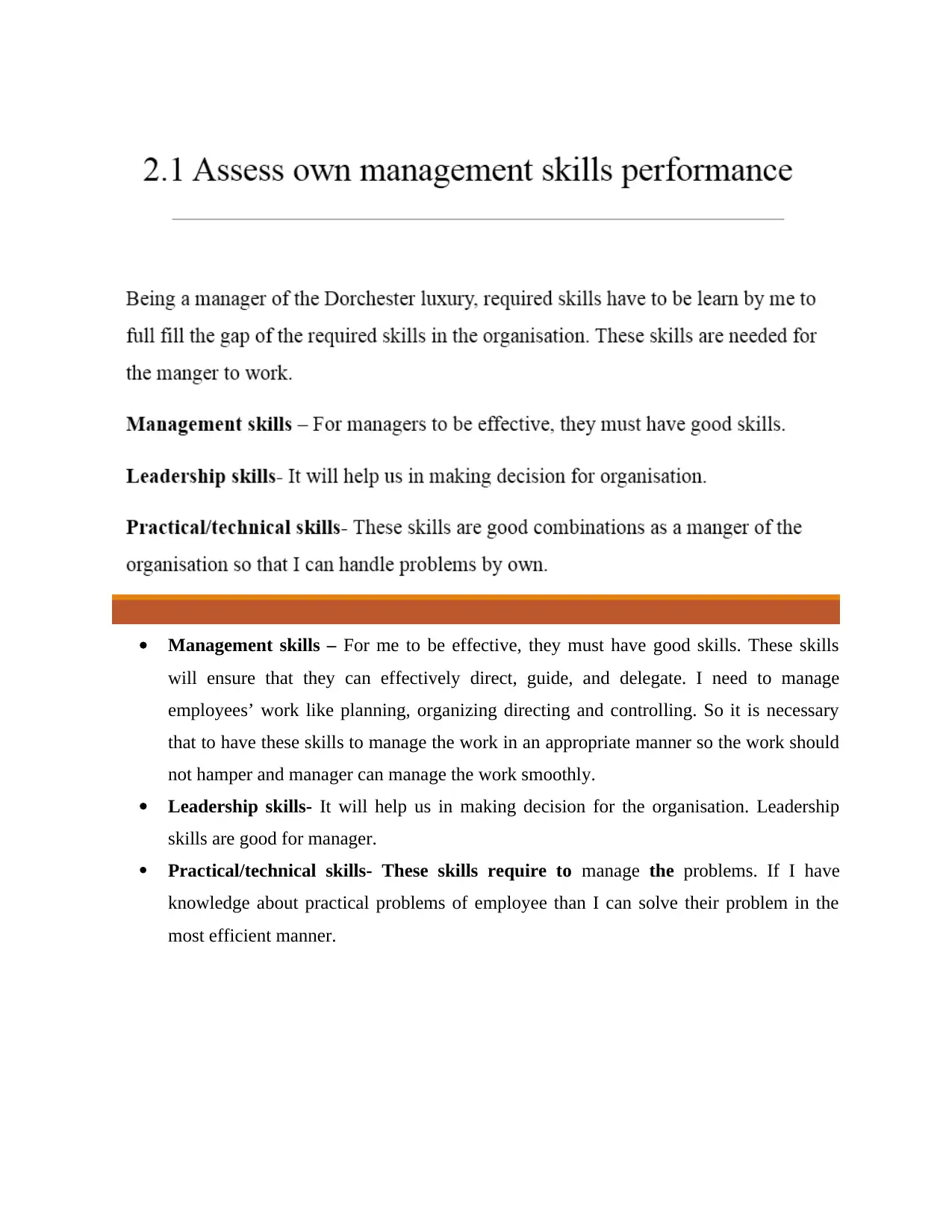
Management skills – For me to be effective, they must have good skills. These skills
will ensure that they can effectively direct, guide, and delegate. I need to manage
employees’ work like planning, organizing directing and controlling. So it is necessary
that to have these skills to manage the work in an appropriate manner so the work should
not hamper and manager can manage the work smoothly.
Leadership skills- It will help us in making decision for the organisation. Leadership
skills are good for manager.
Practical/technical skills- These skills require to manage the problems. If I have
knowledge about practical problems of employee than I can solve their problem in the
most efficient manner.
will ensure that they can effectively direct, guide, and delegate. I need to manage
employees’ work like planning, organizing directing and controlling. So it is necessary
that to have these skills to manage the work in an appropriate manner so the work should
not hamper and manager can manage the work smoothly.
Leadership skills- It will help us in making decision for the organisation. Leadership
skills are good for manager.
Practical/technical skills- These skills require to manage the problems. If I have
knowledge about practical problems of employee than I can solve their problem in the
most efficient manner.
Paraphrase This Document
Need a fresh take? Get an instant paraphrase of this document with our AI Paraphraser
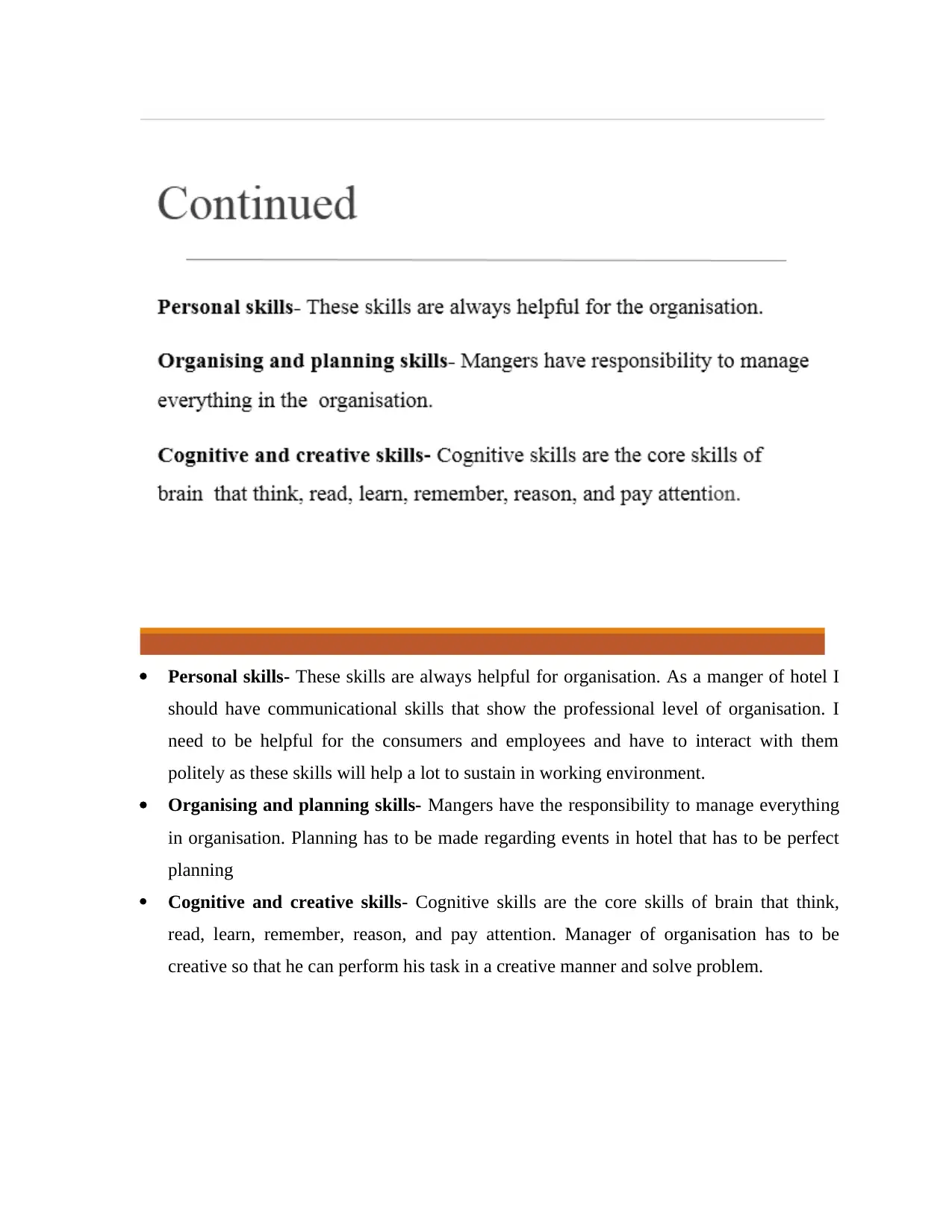
Personal skills- These skills are always helpful for organisation. As a manger of hotel I
should have communicational skills that show the professional level of organisation. I
need to be helpful for the consumers and employees and have to interact with them
politely as these skills will help a lot to sustain in working environment.
Organising and planning skills- Mangers have the responsibility to manage everything
in organisation. Planning has to be made regarding events in hotel that has to be perfect
planning
Cognitive and creative skills- Cognitive skills are the core skills of brain that think,
read, learn, remember, reason, and pay attention. Manager of organisation has to be
creative so that he can perform his task in a creative manner and solve problem.
should have communicational skills that show the professional level of organisation. I
need to be helpful for the consumers and employees and have to interact with them
politely as these skills will help a lot to sustain in working environment.
Organising and planning skills- Mangers have the responsibility to manage everything
in organisation. Planning has to be made regarding events in hotel that has to be perfect
planning
Cognitive and creative skills- Cognitive skills are the core skills of brain that think,
read, learn, remember, reason, and pay attention. Manager of organisation has to be
creative so that he can perform his task in a creative manner and solve problem.
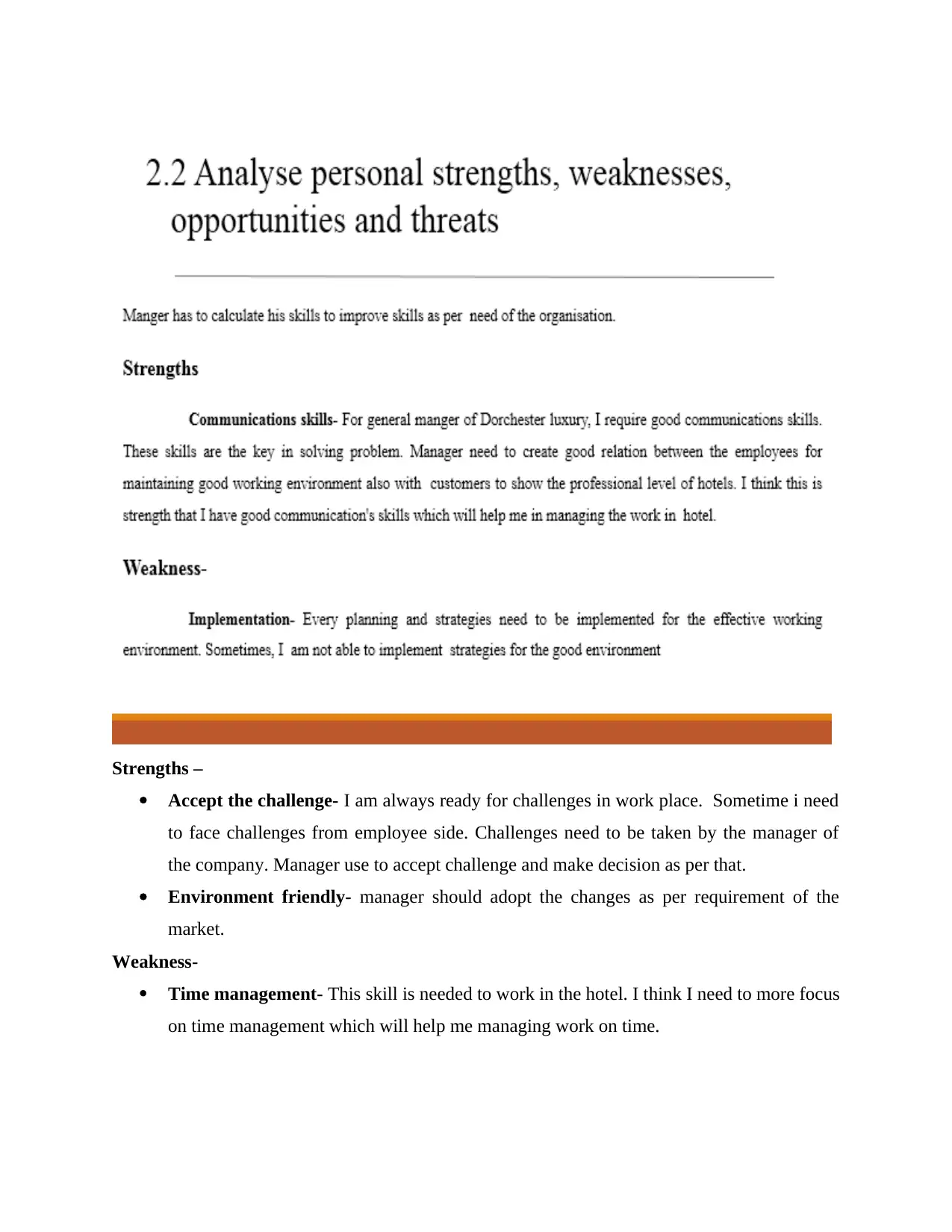
Strengths –
Accept the challenge- I am always ready for challenges in work place. Sometime i need
to face challenges from employee side. Challenges need to be taken by the manager of
the company. Manager use to accept challenge and make decision as per that.
Environment friendly- manager should adopt the changes as per requirement of the
market.
Weakness-
Time management- This skill is needed to work in the hotel. I think I need to more focus
on time management which will help me managing work on time.
Accept the challenge- I am always ready for challenges in work place. Sometime i need
to face challenges from employee side. Challenges need to be taken by the manager of
the company. Manager use to accept challenge and make decision as per that.
Environment friendly- manager should adopt the changes as per requirement of the
market.
Weakness-
Time management- This skill is needed to work in the hotel. I think I need to more focus
on time management which will help me managing work on time.
⊘ This is a preview!⊘
Do you want full access?
Subscribe today to unlock all pages.

Trusted by 1+ million students worldwide
1 out of 25
Related Documents
Your All-in-One AI-Powered Toolkit for Academic Success.
+13062052269
info@desklib.com
Available 24*7 on WhatsApp / Email
![[object Object]](/_next/static/media/star-bottom.7253800d.svg)
Unlock your academic potential
Copyright © 2020–2026 A2Z Services. All Rights Reserved. Developed and managed by ZUCOL.




